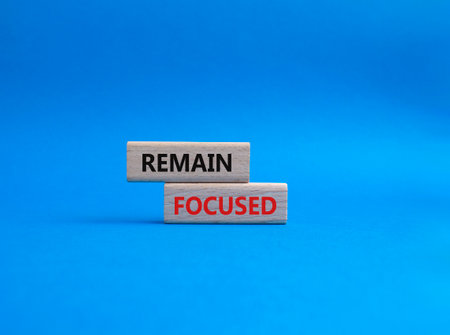1. Understanding the Connection Between Anxiety and Dreams
Anxiety is more than just a feeling of worry or nervousness—it’s a powerful force that can affect every part of our lives, including how we sleep and dream. For many Americans, stress from work, finances, relationships, and even social media doesn’t simply vanish when it’s time to rest. Instead, these worries often follow us into our dreams, shaping what we experience at night.
How Does Anxiety Impact Sleep?
When someone is anxious, their body stays on high alert, making it tough to relax. This can lead to trouble falling asleep or waking up throughout the night. The mind keeps racing with thoughts and concerns, which means restful sleep is hard to come by. In America’s fast-paced culture—where “hustle” is praised and downtime is rare—chronic stress has become common, leading many people to experience disturbed sleep patterns.
The Cycle of Stress and Dream Disruption
| Daytime Stressor | Effect on Sleep | Dream Manifestation |
|---|---|---|
| Work Deadlines | Trouble falling asleep | Dreams of being late or unprepared |
| Financial Worries | Frequent awakenings | Dreams about losing money or failing |
| Relationship Issues | Restless sleep | Arguments or separation in dreams |
| Media Overload | Anxious tossing and turning | Chaotic or overwhelming dream scenarios |
The American Experience: Unique Sources of Nighttime Stress
In the U.S., many people juggle multiple responsibilities at once—jobs, family obligations, and social commitments—all while being constantly connected through digital devices. This “always on” lifestyle makes it difficult for the brain to fully shut down at night. As a result, anxiety often seeps into dreams, creating nightmares that reflect real-life pressures. For example, college students may dream about missing exams due to academic stress, while parents might have nightmares about losing track of their children.
The Science Behind Anxiety Dreams
Research shows that REM (Rapid Eye Movement) sleep—the stage when most vivid dreaming occurs—is especially sensitive to emotional stress. If you go to bed feeling anxious, your brain tends to process these emotions during REM sleep. This can lead to intense dreams or nightmares that feature themes of fear, danger, or helplessness.
2. Common Themes in Stress-induced Nightmares
Recurring Symbols and Scenarios
When anxiety seeps into our sleep, it often shows up in the form of unsettling dreams or nightmares. These stress-induced dreams are not random—they tend to share certain themes and symbols that reflect what’s happening in our waking lives, especially within modern American culture.
Frequent Nightmare Themes Among Americans
| Theme | Description | Why It’s Common |
|---|---|---|
| Being Chased or Attacked | Dreamer is pursued by someone or something, sometimes without knowing why. | This can represent feeling overwhelmed by work, financial pressure, or even social expectations. |
| Losing Control (e.g., falling, car crashes) | Dreams about falling or losing control of a vehicle. | Reflects fears around losing grip on responsibilities, time management, or personal safety. |
| Missing Important Events | Arriving late for work, missing an exam, or forgetting a child at school. | Tied to performance anxiety and the pressure to keep up with fast-paced American life. |
| Public Embarrassment | Forgetting lines during a presentation or appearing unprepared in front of peers. | Highlights social anxiety and fear of judgment—especially relevant in competitive environments. |
| Losing Valuables or Loved Ones | Losing a wallet, phone, or being separated from family members. | Symbolizes insecurity around finances, personal relationships, and the need for security. |
The Role of Modern Stressors
Anxiety-related nightmares often tap into current events and daily stressors unique to American society. For example:
- Work Stress: With remote work and constant connectivity, nightmares about never-ending emails or failing technology are increasingly common.
- Social Media Pressure: Some experience dreams about online embarrassment or cyberbullying—reflecting how digital life affects mental health.
- Economic Uncertainty: Dreams about job loss, eviction, or financial ruin echo widespread concerns about the economy and cost of living.
- Safety Concerns: News coverage about violence or natural disasters can trigger nightmares related to these fears.
A Closer Look at Symbolism
The symbols found in stress-induced nightmares aren’t just random images—they’re your mind’s way of processing real worries. For example:
- Locked Doors: Feeling trapped or unable to escape a situation in waking life.
- Losing Teeth: A classic anxiety dream representing concerns about appearance, communication, or vulnerability.
- Tidal Waves/Floods: Feeling emotionally overwhelmed by life events or responsibilities.
If you notice any of these recurring themes in your own dreams, it may be worth reflecting on what’s currently causing you stress. Nightmares can be unsettling—but they’re also a window into your subconscious mind and the pressures of day-to-day American life.

3. The Science Behind Nightmares: What Happens in the Brain
Understanding the Neurological Roots of Anxiety Nightmares
When we talk about anxiety-driven nightmares, it’s important to look at what’s happening inside our brains. Nightmares are not just random; they often reflect our emotional state, especially when we’re stressed or anxious. During sleep—especially during the REM (Rapid Eye Movement) stage—our brain becomes very active, almost as if were awake. This is when most vivid dreams and nightmares occur.
The Role of Key Brain Areas
| Brain Area | Function in Nightmares |
|---|---|
| Amygdala | Processes emotions like fear and stress; becomes highly active during anxiety nightmares |
| Prefrontal Cortex | Responsible for logic and reasoning; less active during REM sleep, making dreams feel intense and illogical |
| Hippocampus | Stores and recalls memories; mixes real memories with dream scenarios, often triggering past anxieties |
How Stress Triggers Nightmares
When youre under stress, your body produces more cortisol—the stress hormone. High levels of cortisol can disrupt your sleep cycle, making it easier for nightmares to break through. Your brain tries to process all the worries you have during the day, sometimes turning them into dramatic or scary dream stories at night.
Key Physical Responses During Anxiety Nightmares:
- Increased heart rate—even while sleeping, your body reacts as if youre facing a real threat.
- Sweating or feeling hot—your nervous system gets activated, similar to a “fight or flight” response.
- Trouble waking up—sometimes it feels hard to escape from the nightmare because parts of your brain that control movement are temporarily shut down during REM sleep.
The Cycle of Stress and Sleep Disruption
Anxiety and nightmares can feed off each other. If you have an anxiety nightmare, you might wake up feeling shaken, making it harder to fall back asleep. Poor sleep then increases daytime anxiety, creating a challenging cycle. Understanding what happens in your brain is a first step toward breaking this pattern and getting better rest.
4. Personal Stories and Real-world Impact
Everyday Americans Share Their Experiences
Many people across the United States struggle with anxiety-induced nightmares, and their stories reveal just how deeply these dreams can affect daily life. Let’s take a look at some real accounts from Americans dealing with stress-related nightmares.
Emilys Story: Sleepless Nights and Work Struggles
Emily, a 34-year-old marketing professional from Seattle, began experiencing frequent nightmares during a high-pressure project at work. She describes waking up in the middle of the night, heart pounding, after dreaming about missing deadlines or being unprepared for important meetings. Emily says, “I started dreading bedtime. The lack of sleep made it hard to concentrate during the day, and I became more irritable with my coworkers.”
Jakes Journey: Anxiety Nightmares and Relationships
Jake, a 27-year-old teacher in Chicago, found that his anxiety nightmares often centered around losing loved ones or failing his students. He shares, “Sometimes I would wake up feeling guilty or scared. My partner noticed I was more withdrawn and anxious even when I was awake. These dreams made me question my abilities and affected our relationship.”
Emotional, Occupational, and Relational Consequences
| Impact Area | Description | Example |
|---|---|---|
| Emotional | Nightmares increase feelings of fear, sadness, or helplessness. | “I felt on edge all day after a bad dream.” – Ashley, New York |
| Occupational | Poor sleep leads to trouble focusing and lower productivity at work. | “My performance reviews slipped because I was exhausted.” – Brian, Texas |
| Relational | Anxiety from nightmares strains connections with family and friends. | “I snapped at my kids more often because I was so tired.” – Monica, California |
Coping Strategies Shared by Real People
- Journaling: Many find writing about their dreams helps process emotions.
- Therapy: Speaking with mental health professionals can provide relief.
- Meditation: Practicing mindfulness before bed reduces stress for some.
- Support Groups: Connecting with others who have similar experiences lessens feelings of isolation.
The Ongoing Challenge
The impact of anxiety-induced nightmares goes beyond a restless night—it affects how people feel, work, and connect with those they care about. By sharing personal stories, we gain insight into the real-world consequences and the resilience many Americans show as they seek ways to cope.
5. Finding Relief: Strategies and Resources for Managing Stress-induced Nightmares
Understanding the Connection Between Anxiety and Nightmares
When anxiety spills into your dreams, it can lead to restless nights and vivid nightmares. But you’re not alone—many Americans experience stress-related sleep disturbances. The good news? There are practical ways to reduce these nightmares and improve your sleep quality.
American-Friendly Coping Strategies
1. Mindfulness and Relaxation Techniques
Practicing mindfulness before bed helps calm your mind and prepare your body for restful sleep. Try guided meditation apps like Headspace or Calm, which are popular in the U.S., or simple breathing exercises:
| Technique | How to Do It | Recommended Time |
|---|---|---|
| Deep Breathing | Inhale slowly for 4 seconds, hold for 7, exhale for 8 seconds. | 5-10 minutes before bed |
| Progressive Muscle Relaxation | Tense each muscle group, then release from head to toe. | 10 minutes before sleep |
| Mindful Journaling | Write down worries or dreams to process emotions. | Evening routine |
2. Healthy Sleep Habits (Sleep Hygiene)
- Create a consistent bedtime: Go to bed and wake up at the same time every day—even on weekends.
- Limit screen time: Turn off devices at least 30 minutes before sleeping.
- Avoid caffeine and heavy meals late at night: These can disrupt your sleep cycle.
- Make your bedroom comfortable: Keep it cool, dark, and quiet.
Mental Health Resources in the U.S.
If nightmares continue, reaching out for professional help is a smart step. Here are some resources commonly used in America:
| Resource Name | Description | How to Access |
|---|---|---|
| BetterHelp | Online therapy with licensed counselors familiar with anxiety and sleep issues. | Website & Mobile App (Nationwide) |
| NAMI (National Alliance on Mental Illness) | Free support groups and educational resources about mental health. | Nationwide chapters & online resources |
| SAMHSA National Helpline | 24/7 confidential helpline for mental health support. | Call 1-800-662-HELP (4357) |
| Your Local Therapist or Sleep Specialist | Counselors specializing in anxiety disorders and sleep therapy. | Search via Psychology Today or insurance directory |
Preventative Steps to Reduce Anxiety-induced Sleep Disturbances
- Exercise regularly: Physical activity helps regulate stress hormones and promotes deeper sleep.
- Avoid alcohol before bed: While it may make you sleepy initially, alcohol disrupts REM sleep and can increase nightmares.
- Create a calming bedtime ritual: Reading a book, taking a warm bath, or listening to soft music signals your brain it’s time to wind down.
- If you wake from a nightmare: Try grounding techniques like touching a cool surface or focusing on deep breaths to bring yourself back to the present moment.
- Talk about your dreams: Sharing them with a trusted friend or therapist can relieve emotional pressure.
If you’re struggling with stress-induced nightmares, remember that small changes can make a big difference over time. With patience and support, restful nights are within reach.


